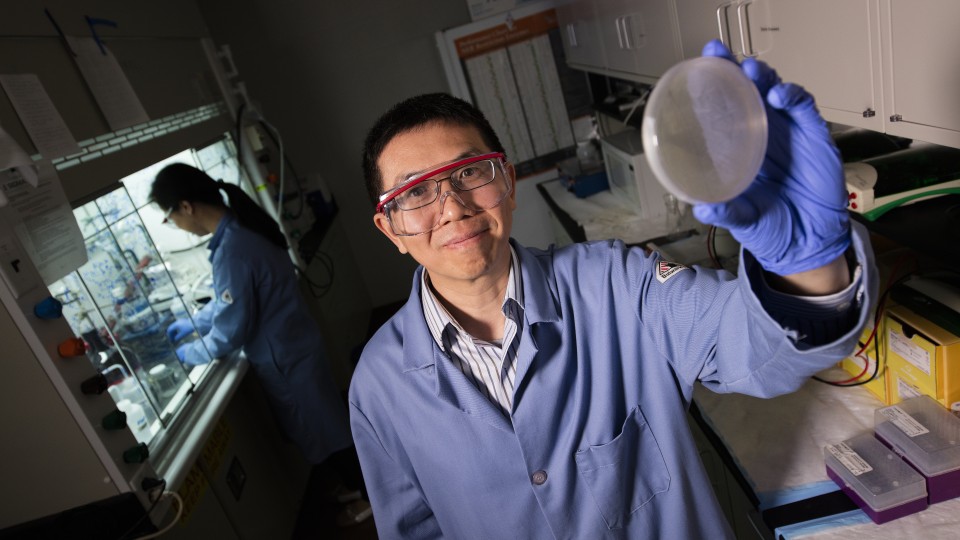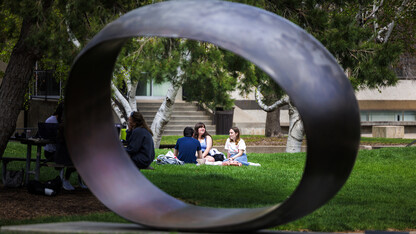· 3 min read
NSF grant supports chemist’s work to expand genetic code

Altering proteins for medical, agricultural and other benefits typically means sticking to nature’s building blocks. A University of Nebraska-Lincoln chemist envisions expanding the genetic code to create innumerable possibilities for research and commercial applications.
Jiantao Guo, assistant professor of chemistry, earned a five-year, $622,320 Faculty Early Career Development Program Award from the National Science Foundation to further his work on a promising new method for incorporating new amino acids into proteins. The work builds on Guo’s earlier breakthrough that laid the groundwork for this research.
Organisms build proteins by linking amino acids, the order specified by the sequence arrangement of nucleotides, DNA’s basic structural unit. Three-nucleotide sequences, called codons, identify a single amino acid. Only 22 amino acids associated with building proteins are known to exist in nature, though researchers have created proteins containing artificial amino acids by engineering the protein translation machinery.
Increasing from three-nucleotide to four-nucleotide codons would significantly expand the genetic code and the repertoire of potential amino acid building blocks. This increase has far-reaching implications for precisely designing new proteins with unique functions.
Previously, Guo created a tRNA, a molecule critical to linking amino acids together, that is capable of reading quadruplet codons. His discovery contributed to the ability to encode more artificial amino acids into living bacterial and mammalian cells.
With this award, Guo will continue investigating quadruplet codon-reading tRNAs and creating additional mutant tRNAs, thereby expanding the potential pool of artificial amino acids for protein biosynthesis.
“With a four-base codon, we can dramatically expand the genetic code,” he said. “Eventually, we want to introduce multiple artificial amino acids with unique physical and chemical properties into proteins of interest. We want to see if we can improve the function of a protein or maybe even create a novel function that cannot be realized in nature.”
Initially, studying the mechanism to decode quadruplet codons using mutant tRNAs will improve scientific understanding of basic biological principles of protein biosynthesis.
But the ability to expand genetic codes could one day significantly broaden research and other applications. For example, researchers could add discreet chemical fluorescent tags to proteins to study their structure and function. Scientists also could create new pharmaceuticals or medical therapies, increase crop yields and improve drought or pest resistance, or engineer bacteria to boost alternative fuel production.
Researchers hope to one day rewire organisms’ biological systems or even create entire genomes made of quadruple codons.
The award also allows Guo to better educate high school and undergraduate students, particularly in new research occurring at the intersection of chemistry and biology. In addition to training individual students, he’ll develop new curricula and share information with a larger general audience though online encyclopedias.
The prestigious NSF grant, known as a CAREER award, supports pre-tenure faculty who exemplify the role of teacher-scholars through outstanding research, excellent education and the integration of education and research.









